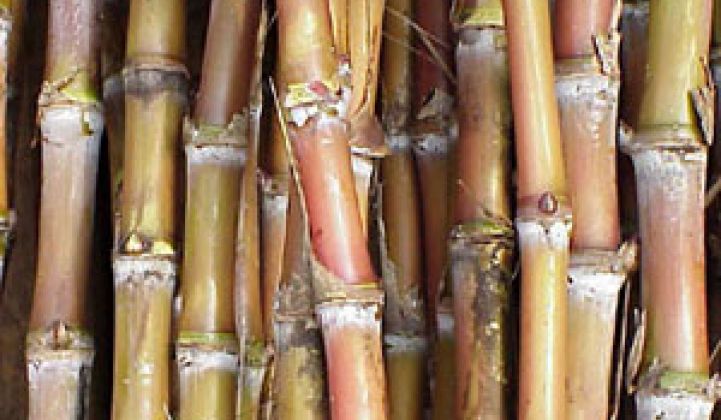Cellulosic ethanol startup Coskata Inc. and U.S. Sugar Corp. have agreed to "explore" building a plant in Clewiston, Fla. that would convert leftover sugarcane material to up to 100 million gallons of ethanol a year.
The two companies have been looking into joining forces to build a $400 million cellulosic ethanol plant for two months now, according to the Palm Beach Post, which first reported the plan.
Florida last week agreed to buy about 181,000 acres of U.S. Sugar's land for $1.34 billion as part of the state's plan to restore the Florida Everglades, while leaving U.S. Sugar the owner of its sugar mill, refinery, railroads and other equipment. U.S. Sugar would also be allowed to keep growing and processing sugarcane for seven crop cycles.
At the same time, Florida Governor Charlie Crist has said he'd like to see a cellulosic ethanol plant built to help make up for roughly 1,800 jobs that may be lost with the sugar giant's eventual departure.
Warrenville, Ill.-based Coskata came out of stealth mode in January with an announcement that it had formed a partnership with General Motors and intended to make cellulosic ethanol for less than $1 a gallon from a variety of feedstocks (see With GM Deal in Hand, Coskata Promises $1 Ethanol).
Coskata was founded with a $10 million Series A round, in July of 2006, from Khosla Ventures, Advanced Technology Ventures and GreatPoint Ventures. The company raised a second, $19.5 million round in April, with investors that included Globespan Capital Partners, General Motors, Capital Partners, Khosla Ventures, GreatPoint Ventures and Advanced Technology Ventures.
Earth2Tech reported Monday that Wes Bolsen, Costaka's vice president of marketing, said the company has recently finished raising a $50-million Series C round of funding, though he didn't disclose where the funding came from.
In April, Coskata said it would build a $25 million, 40 million gallon-per-year demonstration plant in Madison, Penn..
U.S. Sugar said Monday that it would ask the Florida Energy Office for a financial match to its contribution for early engineering on this project, and would ask the U.S. Department of Agriculture to secure loan guarantee funds set aside for the production of non-food based biofuels.
Many other startups besides Coskata are seeking to find ways to turn plant material like switchgrass, wood chips or agricultural waste into ethanol.
Irvine, Calif.-based BlueFire Ethanol plans to build a $130 million gallon cellulosic plant in Mecca, Calif., and has won a $40 million grant from the U.S. Department of Energy to develop a 19-million-gallon-per-year plant at another landfill in Corona, Calif.
Sioux Falls, S.D.-based ethanol manufacturer Poet in August announced it will build a $4 million pilot plant in South Dakota that will begin producing cellulosic ethanol from corn cobs by the end of the year.
Broomfield, Colo.-based Range Fuels is also planning a 20 million gallon-per-year plant in Soperton, Ga. that will convert agricultural waste into cellulosic ethanol.



